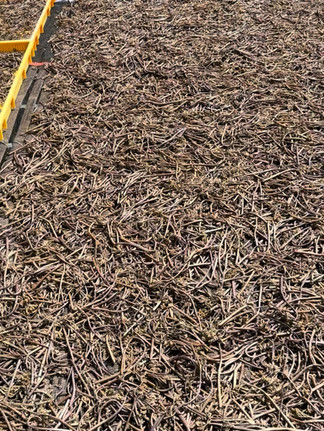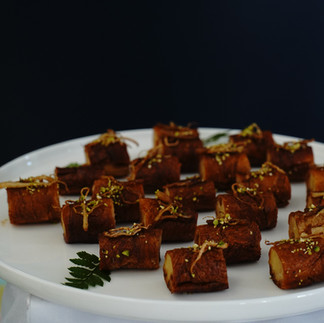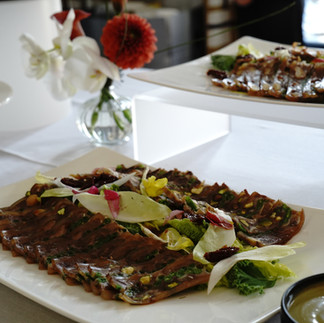Quietly, with Purpose – Bringing Korean Cuisine to the Heart of Paris
- admin01
- 2025년 7월 7일
- 3분 분량
Chef Yongjun Shin’s Reflections on the 2024 Paris Olympics Korea House Dinner

On July 25th, 2024, amidst the electric energy of the Paris Olympics, the Korea House opened its doors to dignitaries, global media, and invited guests. Held by the Korean Sport & Olympic Committee under the theme “A Celebration of Korean Culture in Paris,” the evening’s official dinner was more than a meal—it was a mission.
I had the honor of leading the culinary team for that evening. And though I wasn’t wearing a uniform like our athletes, I carried the same sense of duty—determined to represent Korea with every dish served.
We prepared 18 carefully curated items—from one-bite canapés and light starters to hearty mains and refined desserts. Among them, two dishes held personal meaning: those made with gosari (bracken fern) and chwinamul (aster leaf), mountain vegetables deeply rooted in Korean tradition.

To share their true flavor, we traveled to Cheonghak-dong in Jirisan, hand-harvested the greens, naturally dried them, and brought them to Paris ourselves. These weren’t just ingredients—they carried the landscape, the people, and the time they came from. When I plated those mountain vegetables in Paris, I wasn’t just presenting food. I was sharing a memory, a place, and a culture, bite by bite.
For the main course, we presented a reinterpretation of Korean tteok-galbi, glazed and paired with crispy fried potatoes—Tteokgalbi Bourguignon. We added a tomato-basil geotjeori and a Korean-French twist on japchae, infusing traditional Korean flavors with refined French technique.
I’ve come to believe that honoring Korean cuisine doesn’t mean refusing to evolve. When Korean ingredients meet French methods, they don’t lose their identity— they find new ways to speak, new audiences to reach. This philosophy shaped our entire menu that evening: Korean soul, French expression.
But behind the celebration was a very real struggle.
The kitchen we were given was a bare warehouse—no water, no power, no equipment. After an on-site inspection, I felt overwhelmed. So I reached out to Chef Mingoo Kang, a Michelin 3-star chef who had recently cooked in Paris under similar conditions. His calm, precise advice helped me find focus. Piece by piece, we built a temporary kitchen from the ground up.
Then came power and logistics. Paris was under Olympic security lockdown. We sourced large backup batteries, voltage converters, and even installed solar panels outside to generate electricity. Since deliveries were blocked, we moved ingredients ourselves—by subway, little by little, each day. Through local Korean networks and Olympic staff, we coordinated handovers, carrying the mise en place to our pop-up kitchen in silence and sweat. In the end, the effort was worth it.

Though we prepared for 250 guests, nearly 400 portions were served, and every dish was completely sold out within just 45 minutes of the 5-hour event. We saw guests return with empty plates, smiling, asking for seconds. It wasn’t just about taste—it was connection. Korean cuisine had spoken, and they had listened.

After returning to Korea, I found myself thinking differently. In the past, I was focused only on my own craft: How can I cook better? But now, a new question stayed with me: “What role can I play in the future of Korean cuisine?” Because Korean food is no longer just for Koreans. It has become a language of culture, of hospitality, of identity— one that can be translated, evolved, and shared across the world.
And I want to be a part of that conversation, quietly, but with everything I have.
– Chef Yongjun Shin, Joo052























댓글